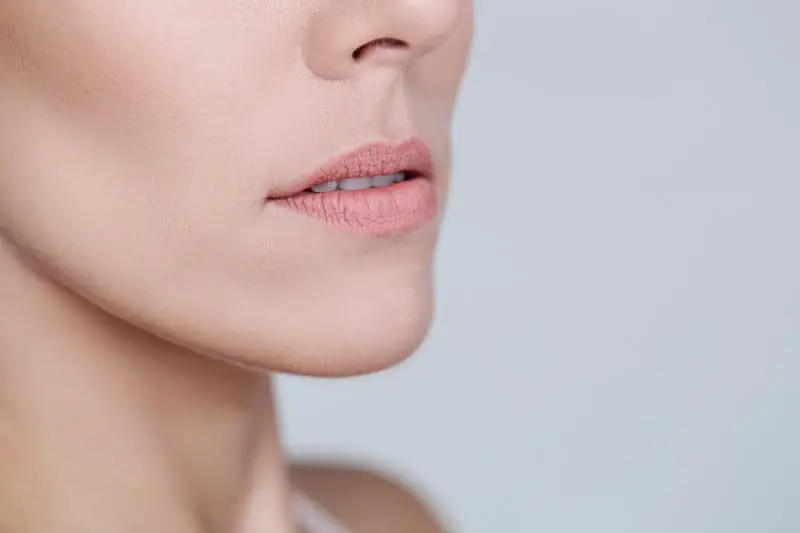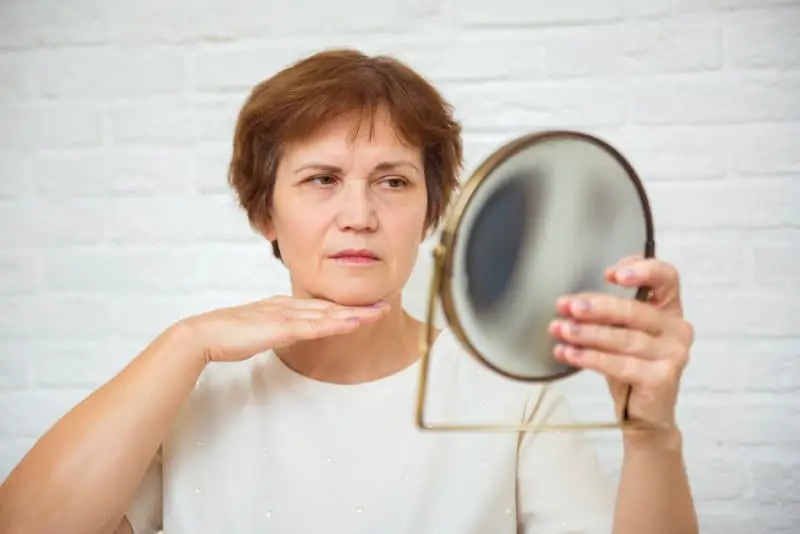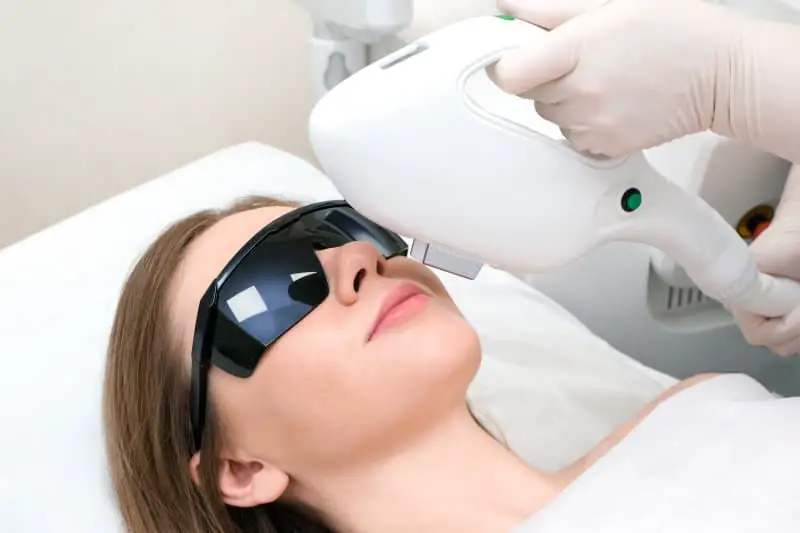Hair is a major part of what makes every one of us unique. And while males are generally associated with thick beards and facial hair, females usually lack facial hair. However, in some cases, a woman might start developing some unwanted hairs on their chins and face.
So, is female facial hair normal? It’s normal for women to have very fine hairs around the chin. However, in some cases, women might suffer from excessive facial hair growth. While this can be due to some natural reasons, it can also be a sign of some serious underlying medical conditions.
If you want to find out more about female facial hair and when it should be counted as a red flag, keep on reading this article.
What Causes the Appearance of Facial Hair and Beards in Women?
Women naturally have hairs not only on their chin but all over their bodies. However, these hairs are extremely thin and light in color.
This typical hair is called “vellus hairs”, but is also known as “peach fuzz” due to its similarities with the very fine and light hairs found on the peach skin. This kind of hair exists in both males and females and all over their bodies.
However, when the hairs in the chin area start to grow excessively, it’s usually due to a condition known as “hirsutism”, which is usually associated with virilization (females developing male secondary characteristics, such as deep voice and body hair).
In that case, the hairs on the chin are characterized by being longer as well as coarser, and thicker than vellus hairs.
Hirsutism can happen for a variety of reasons, mainly due to disturbance in hormone balance that leads to increased secretion of testosterone hormone. (Testosterone is the main sex hormone in males but is also produced in females in very small quantities)
You should also know that hirsutism is different from another condition called “hypertrichosis”, which is a condition in which hair grows in areas where it shouldn’t, whether it’s in male or female bodies.
How Common is Hirsutism Among Women?

Hirsutism is not common in women but it’s fairly present. The condition is highly dependent on genetics, so it typically runs in families with naturally higher testosterone levels among females.
If any of your family members also used to suffer from this condition, it’s most likely a normal situation that you shouldn’t worry about.
According to a 2010 study about the distribution of hirsutism cases all over the world, the condition is estimated to affect about 5 to 10% of women worldwide.
In addition to families, the condition is also related to ethnicities with different gene pools, as women of Mediterranean, Indian, and South Asian descent are more likely to develop hirsutism than other races.
Is Facial Hair a Sign of Hormonal Imbalance in Women?

Mild hirsutism that causes a few hairs to grow in the chin area can cause a feeling of self-consciousness, but it’s usually a mild condition that poses no danger to women’s health on its own.
However, the appearance of facial hair on women is usually a sign of a hormonal imbalance that can cause some health problems for women, especially in the case of reproductive health.
While you can seek medical help anytime you suspect a problem, if your menstrual cycle is unaffected and you only have a few hairs, you shouldn’t worry much about it.
However, if the hirsutism is accompanied by noticeable symptoms of underlying diseases or health conditions, you should contact your doctor immediately for proper diagnosis and treatment.
Conditions and Syndromes That Cause Female Chin Hairs to Grow
As previously mentioned, hirsutism is mainly a sign of hormonal imbalance in terms of testosterone in women.
However, it can also be a sign of other factors, conditions, and syndrome. Let’s take a quick look at them:
1. Polycystic Ovary Syndrome (PCOS)
Besides mild hormonal balance, polycystic ovarian syndrome is one of the most common causes of female facial hairs and hirsutism.
In this case, one or both ovaries develop small benign cysts that cause irregularities in androgen hormones produced by the ovaries. The condition is usually chronic and comes with diagnostic symptoms, such as:
- Irregular periods
- Decreased fertility
- Persistent PMS-like mood swings
- Pain around the pelvic area accompanied by fatigue and headache
- Sleep disturbance
According to the Center for Disease Control and Prevention (CDC), PCOS is one of the most common causes of female infertility and affects about 5 million women (2.9%) in the United States.
2. Adrenal Gland Problems

The adrenal glands found above the kidney are the glands responsible for the production of various hormones in the body, including androgens and testosterone.
Certain conditions can cause hypersecretion of those hormones, which leads to hirsutism. This includes:
- Tumors in the adrenal gland (whether they’re benign or cancerous)
- Congenital adrenal hyperplasia (a condition where the adrenal gland is naturally larger from birth)
- Cushing’s Syndrome (a condition in which the concentration of Cortisol hormone increases significantly)
When the adrenal gland is the culprit for excess production of facial hair, it’s normally accompanied by an increase in other hormones produced by the same gland. These causes other side effects, such as:
- Noticeable disturbance in blood glucose levels
- High blood pressure
- Lethargy and weakness in muscles
- Increase in weight, especially the upper body region
- Stress and headache (especially due to increase of cortisol in Cushing’s syndrome)
3. Aging
As women get older, especially during and after menopause, a signifncat hormonal disturbance might occur in the bodies.
According to a 2012 study regarding the relevance of hirsutism in women in various age stages, it was noted that there’s a natural tendency for hairs to grow on the chin as women advance in age beyond menopause.
Unlike the previous conditions, this is a natural reaction to the hormonal disturbance and is nothing to be worried about, although following up with post-menopausal supplementation can help with the problem.
4. Certain Medications Can Trigger Hirsutism

Not only diseases, conditions, and syndromes can trigger hirsutism, but also certain medications.
Of course, the vast majority of hormonal medications, such as anabolic steroids and testosterone supplementation can cause hirsutism.
However, some immunosuppressants like Cyclosporine, endometriosis medications like Danazol, and anti-seizure medications like Phenytoins can also cause hairs to grow on the chin.
Moreover, if you’re using Minoxidil prescription to treat female hair thinning or to increase hair density, you should know that the medication works locally.
So, if the liquid or serum comes in contact with your cheeks on your chin, hairs will start to grow in this area.
Final Thoughts
This wraps it up for today’s guide about female facial hair and whether it’s normal for women to have hairs on their chin.
While this mainly depends on the types of hairs in question, a few hairs around the chin are quite normal and common.
However, if hairs start to grow noticeably, it might be a sign of some serious underlying health conditions.
I’ve also written a guide about waxing facial hairs and whether it’s the best option as opposed to other methods. The article is male-oriented but it has a lot of valuable information that can work for both men and women, so it’s worth checking out!

